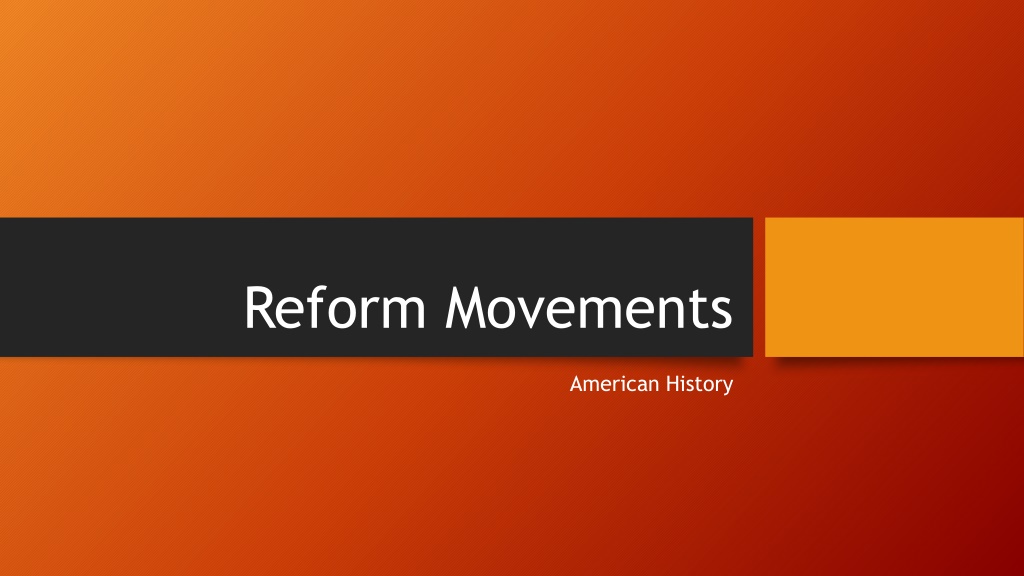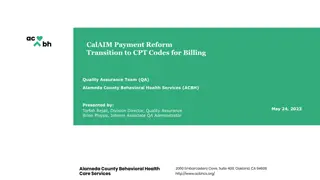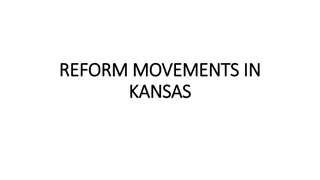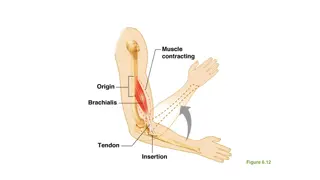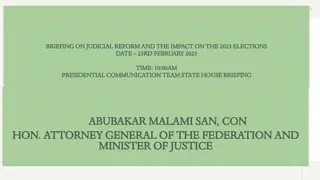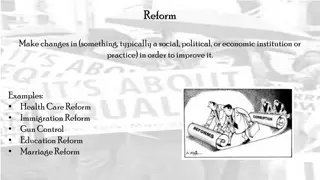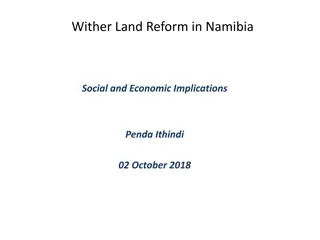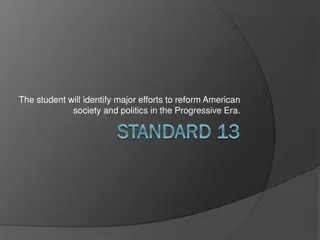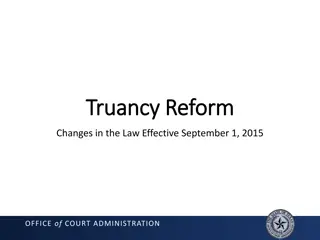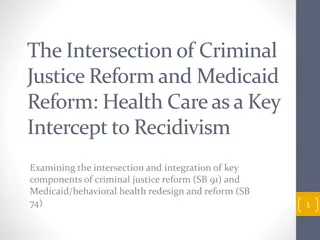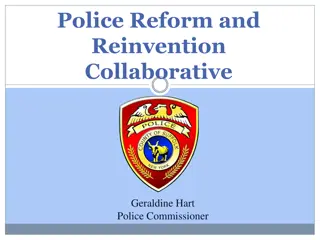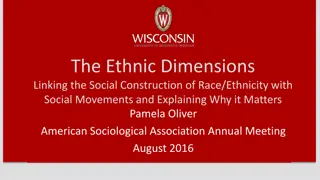Reform Movements
The reform movements in American history, including abolition and women's rights. Understand the concept of reform and how it shaped society. Dive into essential questions about the changes brought by these movements. Discover transcendentalism and utopian ideals. Reflect on present-day reform possibilities in the U.S. Uncover the differences between the early 1800s and modern times. Engage in interviews with reformers and find informative biographical links in the provided Schoology folder.
Download Presentation

Please find below an Image/Link to download the presentation.
The content on the website is provided AS IS for your information and personal use only. It may not be sold, licensed, or shared on other websites without obtaining consent from the author. Download presentation by click this link. If you encounter any issues during the download, it is possible that the publisher has removed the file from their server.
E N D
Presentation Transcript
Reform Movements American History
Start-Up Question If I want to reform something in the school, what can you assume I mean by the word reform?
Content Standards 7.4.4.18.3 Identify causes and consequences of antebellum reform movements, including abolition and women s rights. Reading: CCSS. ELA-Literacy.RH.6-8.4 Determine the meaning of words and phrases as they are used in a text, including vocab specific to domains related to history/social studies.
Essential Questions What was the reform movement? What changes occurred as a result?
Reform Reform: Verb: To improve by alteration, correction of error, or removal of defects; put into a better form or condition. Noun: Action to improve or correct what is wrong or defective in something.
Transcendentalism Puts emphasis on people using more than logical thinking, but also using their emotions and intuition. Focuses on individualism.
Utopian Adjective: Excellent or ideal but impracticable; visionary. Noun: A zealous but impracticable reformer of human society.
Reform Questions Think about today in the U.S. What do you think could be reformed? Make a list together
Reform Questions How was the early 1800 s different from today? What do you think would need improving in the U.S. during the 1830s? Let s make a list together of things that people might want to change back then.
Interview With A Reformer Let s go over the sheet together.
Schoology Link There is a folder that contains biographical links for each of the reformers that we are focusing on.
Interview with a Reformer Assignment Dorothea Dix Horace Mann Fredrick Douglass Elizabeth Stanton Shaylee Nathaniel Austin Megan Levi Trey Jon Novelynn Makaylee Daniel Chasyti Courtney Vincent Maddie Trista Kenny
Interview with a Reformer Assignment Dorothea Dix Horace Mann Fredrick Douglass Elizabeth Stanton Rosalyn Kate Jessica Americis Chad Brennan Caleb Dawson Lydia Abby Nicole Marcus Brooklyn Joey Cece Edward Tanner
Idea Exchange Write down on a post-it one of the facts that you learned when interviewing your reformer - Put your name on the post-it. After you have done this, Frederick Douglass interviewers trade with Elizabeth Stanton, and Horace Mann trade with Dorothea Dix.
Dorothea Dix Create hospitals for the mentally ill Created a bill (vetoed) 12 million acres Tried to put heaters in the jails for women Hampton Maine 1802 MM: 12 left with grandmother to live in Mass. Hope that they make prisons for women more suitable.
Horace Mann Pres. Or Secretary at Brown College Change: give college for money for education U.S. House of Rep. Better trained teachers for schools Franklin, Mass. May 4th, 1796 Good: Wanted people to have a good ed. Continue beneficial education be ashamed to die until you have won some victory for humanity.
Frederick Douglass Wanted to abolish (get rid of) slavery Change: tried to free slaves Wrote a book (narrative of the slave Frederick Douglass, Speeches Born: Feb. 18th (?) Maryland Wanted to get rid of slavery Martin Luther king Jr.
Elizabeth Cady Stanton Wanted: ability for women to vote Change: Start the NWSA (president) July 1848 Seneca Falls Convention\ Born: Nov. 12th, 1815 Johnson, NY Women s Rights Dad wanted a boy Further: Right for women (extended)
